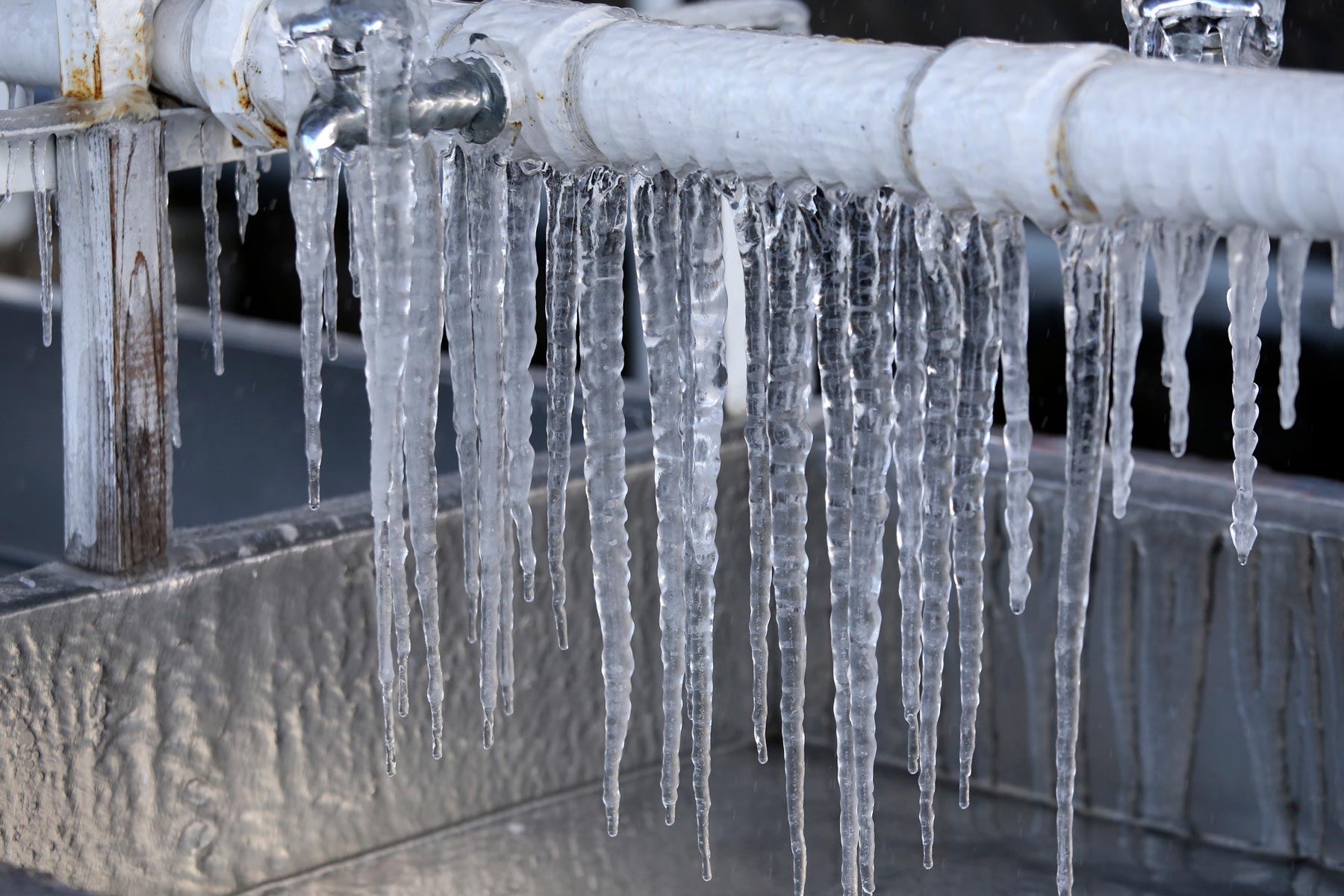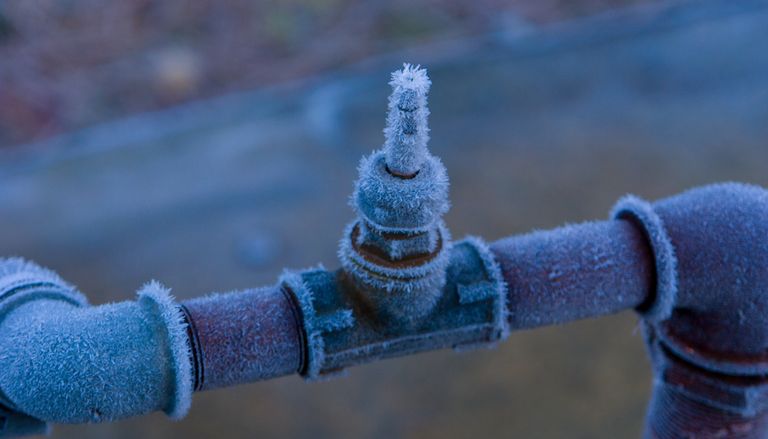Protecting Against Frozen Pipes in Winter: Expert Advice
Book TodayAre you currently trying to locate content concerning Prevent Frozen Pipes ?

Winter can wreak havoc on your pipes, particularly by freezing pipelines. Right here's how to stop it from happening and what to do if it does.
Intro
As temperatures decline, the threat of icy pipes rises, potentially bring about costly repair work and water damages. Understanding exactly how to prevent icy pipes is vital for homeowners in cold environments.
Recognizing Icy Pipes
What causes pipes to freeze?
Pipes freeze when revealed to temperatures listed below 32 ° F (0 ° C) for expanded periods. As water inside the pipes freezes, it increases, putting pressure on the pipe wall surfaces and potentially causing them to break.
Risks and problems
Frozen pipes can cause water disturbances, property damage, and costly repair services. Burst pipelines can flooding homes and cause extensive architectural damages.
Indications of Frozen Piping
Recognizing frozen pipes early can stop them from rupturing.
Just how to determine icy pipelines
Search for reduced water flow from taps, uncommon smells or noises from pipelines, and noticeable frost on revealed pipes.
Prevention Tips
Insulating prone pipes
Wrap pipelines in insulation sleeves or make use of warm tape to safeguard them from freezing temperatures. Concentrate on pipes in unheated or external areas of the home.
Heating methods
Keep indoor areas adequately warmed, particularly locations with plumbing. Open closet doors to permit warm air to flow around pipelines under sinks.
Securing Outdoor Plumbing
Yard tubes and exterior faucets
Detach and drain pipes yard hoses before wintertime. Set up frost-proof spigots or cover outdoor taps with shielded caps.
What to Do If Your Pipelines Freeze
Immediate activities to take
If you believe frozen pipelines, keep taps open to soothe stress as the ice melts. Use a hairdryer or towels taken in hot water to thaw pipelines gradually.
Long-Term Solutions
Architectural adjustments
Consider rerouting pipelines far from outside walls or unheated locations. Add additional insulation to attic rooms, basements, and crawl spaces.
Upgrading insulation
Invest in top quality insulation for pipelines, attics, and wall surfaces. Correct insulation aids preserve constant temperature levels and lowers the danger of frozen pipes.
Conclusion
Protecting against icy pipes needs positive steps and quick feedbacks. By recognizing the causes, signs, and preventive measures, house owners can shield their plumbing throughout cold weather.
Helpful Tips to Prevent Frozen Pipes this Winter
UNDERSTANDING THE BASICS: WHY PIPES FREEZE AND WHY IT’S A PROBLEM
Water freezing inside pipes is common during the winter months, but understanding why pipes freeze, and the potential problems it can cause is crucial in preventing such incidents. This section will delve into the basics of why pipes freeze and the associated problems that may arise.
THE SCIENCE BEHIND FROZEN PIPES
When water reaches freezing temperatures, it undergoes a physical transformation and solidifies into ice. This expansion of water as it freezes is the primary reason pipes can burst. As the water inside the pipe freezes, it expands, creating immense pressure on the walls. If the pressure becomes too great, the pipe can crack or rupture, leading to leaks and water damage.
FACTORS THAT CONTRIBUTE TO PIPE FREEZING
Low Temperatures: Extremely cold weather, especially below freezing, increases the risk of pipes freezing. Uninsulated or Poorly Insulated Pipes: Pipes located in unheated areas, such as basements, crawl spaces, or attics, are more prone to freezing. Insufficient insulation or lack of insulation altogether exacerbates the problem. Exterior Wall Exposure: Pipes running along exterior walls are susceptible to freezing as they encounter colder temperatures outside. Lack of Heating or Temperature Regulation: Inadequate heating or inconsistent temperature control in your home can contribute to frozen pipes. PROBLEMS CAUSED BY FROZEN PIPES
- Pipe Bursting: As mentioned earlier, the expansion of water as it freezes can cause pipes to burst, resulting in significant water damage.
- Water Damage: When pipes burst, it can lead to flooding and water damage to your property, including walls, ceilings, flooring, and personal belongings.
- Structural Damage: Prolonged exposure to water from burst pipes can compromise the structural integrity of your home, leading to costly repairs.
- Mold and Mildew Growth: Excess moisture from water damage can create a favorable environment for mold and mildew growth, posing health risks to occupants.
- Disrupted Water Supply: Frozen pipes can also result in a complete or partial loss of water supply until the issue is resolved.
WHY CERTAIN PIPES ARE MORE PRONE TO FREEZING
- Location: Pipes located in unheated or poorly insulated areas, such as basements, crawl spaces, attics, or exterior walls, are at higher risk of freezing.
- Exterior Pipes: Outdoor pipes, such as those used for irrigation or exposed plumbing, are particularly vulnerable to freezing as they are directly exposed to the elements.
- Supply Lines: Pipes that carry water from the main water supply into your home, including the main water line, are critical to protect as freezing in these lines can affect your entire plumbing system.
- Underground Pipes: Pipes buried underground, such as those connected to sprinkler systems or outdoor faucets, can be susceptible to freezing if not properly insulated.
https://busybusy.com/blog/helpful-tips-to-prevent-frozen-pipes-this-winter/

As an avid person who reads on Winter Plumbing Precautions: Preventing Frozen Pipes, I think sharing that excerpt was a smart idea. Sharing is nice. Helping others is fun. I praise you for being here. Don't forget to stop by our site back soon.
Call Today